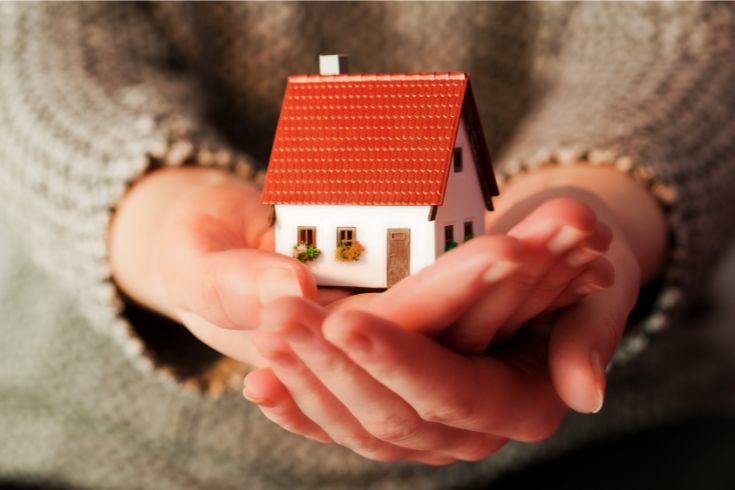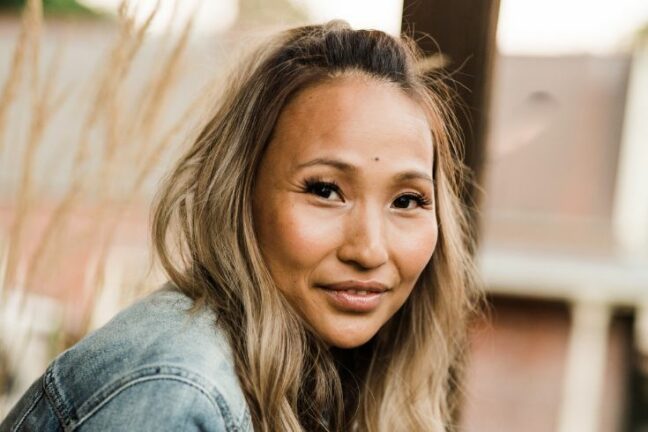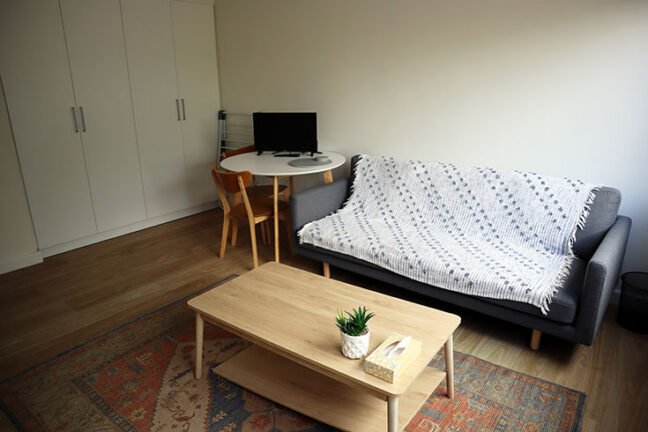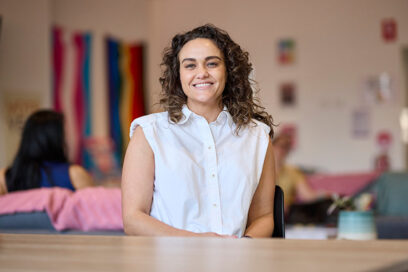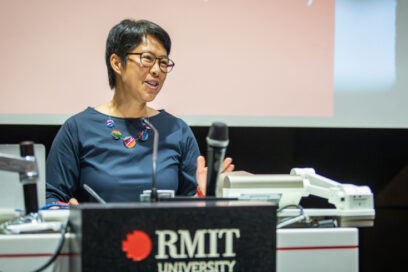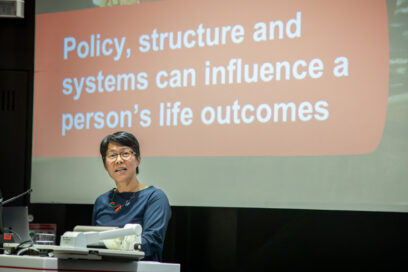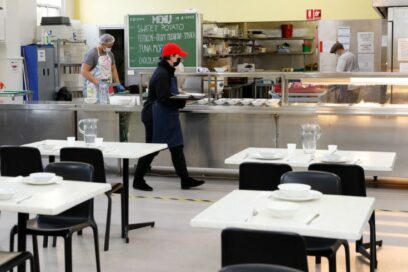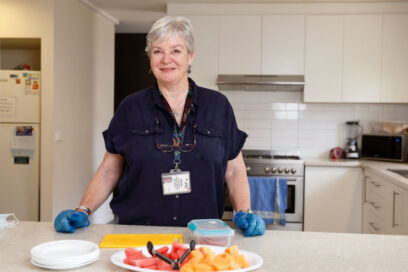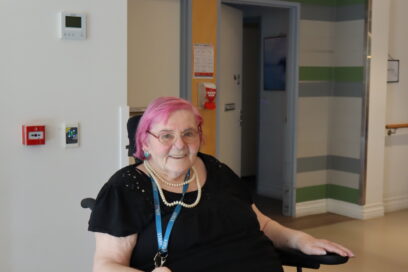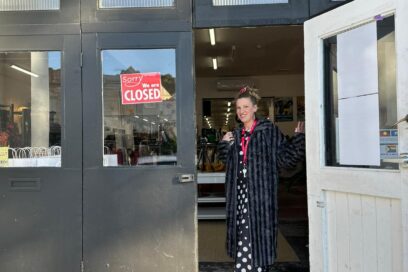Imagine what it feels like to move into your own apartment, after years of couch surfing, sleeping rough or other forms of homelessness. Having a safe place to call home and a door to close behind you that can be locked.
“When I was homeless, everywhere I stayed was either on the floor or on a couch. But when I moved here I had my own room and a key. I can close the door. It’s my own space.” – Maria
Sacred Heart Mission’s crisis accommodation service for women, called Homefront, works as a circuit-breaker in the cycle of homelessness. The Homefront team provides temporary homes where women can stabilise their lives and access support to find a permanent home.
“Having safe accommodation at Homefront allows women to take a deep breath and sense of calm after having experienced some pretty difficult situations,” Program Coordinator Regina says.
When someone first moves in, staff work with residents assessing their independent living skills such as cooking, cleaning and maintaining their living space. If required, staff can refer to external agencies for support such as NDIS, or an occupational therapist, that will help them to build daily living skills.
Understanding a resident’s needs helps to inform appropriate matching to their next tenancy – if a woman requires supported accommodation as her next step, this will be arranged. Homefront also refers women to external health and mental health services, legal support, assistance with employment or family services.
Former resident Jess* says that she felt “so blessed to be in such a beautiful home and environment at Homefront.”
“With the care and support from the Sacred Heart Mission team, I’m really excited to do all I can to play my role in finding my feet again, and a more positive future. Everyone has been beyond amazing,” says Jess.


